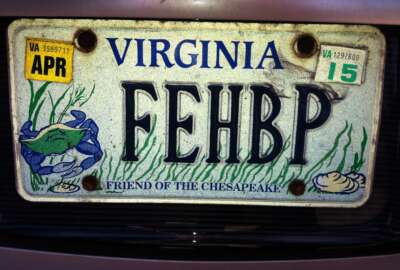
$2,000 for 2 hours of work
If somebody offered you $2,000 for two hours of work and it's not illegal, immoral or fattening, would you take it?
If somebody offered you $2,000 for two hours of your time, would you take it?
That offer is available to many people who pay premiums to one of the many plans in the federal health program. Open season — when people can change plans or options within the same plan — started Monday and runs through close of business on Monday, Dec. 11.
If you are like a lot of people, you’ll wait until the last minute, get frustrated (or sidetracked) and stay in the same health plan you’ve been in for the past decade.
The good news is that all the plans in the FEHBP are good. The government pays the lion’s share of the total premium (about 72 percent). And you can’t be turned down because of a preexisting condition, age or for any other reason.
The not-so-good news is that most people — roughly 94 percent — will sleepwalk through the open season. Most will not do any serious shopping, even though many agencies have subscribed to the online version of the Consumers’ Checkbook Guide to Health Plans for Federal Employees. Walton Francis, the editor of the guide, estimates that most people can save up to $2,000 in premiums next year by doing a little comparison shopping. In many cases, they can stay in their current plan, but save lots of money by switching from its standard option to its basic option.
Things you need to consider in your 2018 health plan include making sure your doctor is in the preferred provider option. Otherwise, you will need a new doctor, a new health plan or be prepared to pay a lot more for sticking with your favorite doctor by going out of network.
Your health plan’s catastrophic limit (the amount you will have to pay in a worst-case medical scenario) is often overlooked, but it is very important. If you or your family suffers a devastating medical event next year (illness or accident), the limit-to-you amount could be critical. Most bankruptcies in the U.S. are the result of medical bills. That shouldn’t happen to anybody in the federal FEHB program.
People should also check out plans with health savings accounts, which have been described as Roth IRAs on steroids. A little work. A lot of savings.
Between now and the end of open season, we’ll have a series of columns (and Wednesday Your Turn radio shows) featuring best buys and with shopping tips from Francis. We’ll talk about Medicare Part B (Do you need it? Can you afford not to have it?). And best buys by premium. Plans with the best catastrophic coverage. What you don’t need, but may be paying for. The difference between a self-plus-one and a family plan. And best buys for retirees with and without Medicare Part B.
Tomorrow’s Your Turn radio show will feature Walton Francis, the guy who literally wrote the book on the federal health insurance program. You can listen live (10 a.m. ET) at Federal News Radio or at 1500 AM in the D.C. area. The show will be archived on the Your Turn page, so you can listen again, listen later or refer it to a friend. If you have questions for him, you can call in during the show, or send them to me c/o mcausey@federalnewsradio.com.
Nearly Useless Factoid
The first cheesecake may have been created about 4,000 years ago on the Greek island of Samos.
Source: Cheesecake.com
Read more of Mike Causey’s Federal Report
Copyright © 2025 Federal News Network. All rights reserved. This website is not intended for users located within the European Economic Area.
Mike Causey is senior correspondent for Federal News Network and writes his daily Federal Report column on federal employees’ pay, benefits and retirement.
Follow @mcauseyWFED





